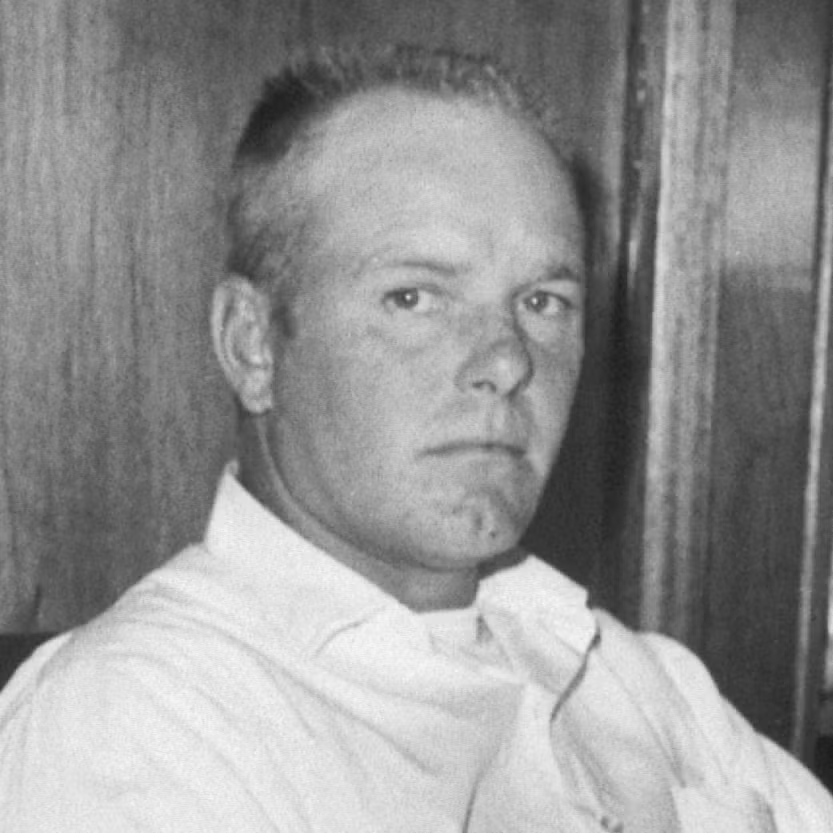
Table of Contents
Who Was Richard Loving?
Richard Loving was a construction worker and passionate drag car racer who became an emblematic figure in the fight against racial discrimination in the United States. He married Mildred Jeter, whose heritage included African American and Native American ancestry. Their marriage violated Virginia’s Racial Integrity Act due to Richard’s English and Irish descent. Following their union, the couple faced severe repercussions, including being ordered to leave the state. Their case gained national attention when it was taken up by the American Civil Liberties Union (ACLU). In a landmark decision in 1967, the U.S. Supreme Court struck down the Virginia law, effectively ending the prohibition of interracial marriages across the country. The Lovings lived legally as a married couple in Virginia until Richard’s untimely death in 1975, while Mildred passed away in 2008.
Early Life
Richard Perry Loving was born on October 29, 1933, in Central Point, Virginia, located in Caroline County. Unlike other Southern communities marked by segregation, rural Caroline County was characterized by a diverse racial dynamic, where individuals of different ethnic backgrounds mingled openly. This environment greatly influenced Richard’s upbringing and personal relationships. He developed a passion for automotive engineering and drag racing, achieving notable success and working as a laborer and construction worker to support himself.
Marriage to Mildred Loving
Richard, of Irish and English descent, met Mildred Jeter, who was of African American and Native American descent, when he was 17 and she was 11. Their initial meeting at Mildred’s home revolved around her siblings’ music, and while Mildred was initially indifferent to Richard, their friendship blossomed into a romantic relationship. After Mildred became pregnant at 18, the couple decided to marry.
Arrest and Sentencing of Mildred and Richard Loving
The couple’s plans were thwarted by Virginia’s 1924 Racial Integrity Act, which prohibited interracial marriages. Aware of the difficulties they would face in obtaining a marriage license, Richard and Mildred traveled to Washington, D.C., to wed on June 2, 1958. Upon returning to Virginia and staying with Mildred’s family, they were arrested several weeks later after the local sheriff, reportedly tipped off, discovered them together in their bedroom. While Richard was able to post bail the next day, Mildred was detained for several nights.
In January 1959, the Lovings accepted a plea bargain under which Judge Leon Bazile suspended their prison sentences, provided they did not return to Virginia together for 25 years. Effectively exiled from their community, the couple initially moved to Washington, D.C. However, after a personal tragedy involving one of their children, they attempted to return home for a family visit, only to be arrested again. They ultimately decided to secretly re-establish their residence in Caroline County.
Bobby Kennedy and The ACLU
In 1963, Mildred, known for her quiet dignity, reached out to then-Attorney General Robert Kennedy for assistance. His office advised her to contact the ACLU, leading to lawyers Bernard S. Cohen and Philip J. Hirschkop taking on their case later that year. Throughout the legal proceedings, Richard remained steadfast in his commitment to Mildred, resisting any suggestions of divorce. Their story gained wider recognition through a March 1966 feature in LIFE Magazine, with photographs by Grey Villet.
Loving v. Virginia Supreme Court Case
After Judge Bazile’s ruling was upheld in appeals, the case ultimately reached the U.S. Supreme Court. In the landmark case of Loving v. Virginia, the Court unanimously struck down Virginia’s anti-miscegenation statute on June 12, 1967, thereby allowing the Lovings to return home legally and ending the ban on interracial marriages in other states. Chief Justice Earl Warren wrote the opinion for the Court, asserting that marriage is a fundamental civil right, and to deny this right based on race was “directly subversive of the principle of equality at the heart of the Fourteenth Amendment.”
With the legal barriers removed, Richard and Mildred returned to their community in Virginia, where Richard built a home near his extended family. They continued to raise their three children.
Children
Richard and Mildred Loving had three children together: Sidney, Donald, and Peggy. Sidney Jeter, the eldest, was from Mildred’s previous relationship. Tragically, Donald passed away in 2000 at the age of 41, and Sidney died in 2010. Peggy, known as Peggy Loving Fortune, is the only surviving child of the Lovings and is a divorcée with three children.
Death and Legacy
Richard Loving was killed in an automobile accident on June 29, 1975, in his birthplace when another vehicle, driven by a drunk driver, struck his car after running a stop sign. Mildred, who was also in the vehicle, suffered significant injuries, including the loss of sight in her right eye.
In honor of the Lovings’ triumph and the celebration of multiculturalism, an unofficial holiday called Loving Day is observed on June 12, commemorating the date when the prohibition against interracial marriages was lifted in all states. Their story has inspired various works, including a 1996 television movie, the documentary The Loving Story released in 2011, and the critically acclaimed biopic Loving, starring Joel Edgerton and Ruth Negga, which was released in 2016 and received several award nominations.
